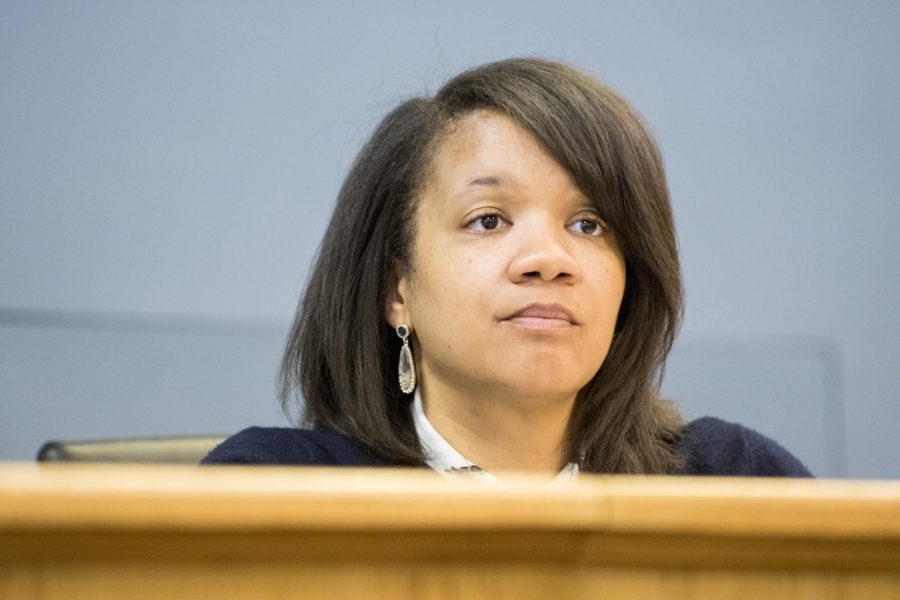Reparations subcommittee reviews new eligibility survey
Daily file photo by Colin Boyle
The city’s reparation subcommittee met Friday to discuss a new reparations survey.
January 25, 2021
A city reparations survey to determine resident eligibility will soon be sent out, aldermen said at a reparations subcommittee meeting Friday.
The subcommittee reviewed a city-developed survey, which was created to help “in identifying, prioritizing, and quantifying” individuals who qualify for the city’s homeownership assistance reparations program. The survey is set to include questions addressing whether respondents live in intergenerational homes, have faced housing discrimination in Evanston and are descendants of Evanston residents who faced housing discrimination due to city rules between 1919 and 1969.
The survey will be uploaded to SurveyMonkey, and subcommittee members plan to share it through their constituent information channels, as well as through Black churches and other organizations in Evanston.
Some residents expressed concern that older Evanston residents, particularly those who do not frequently use technology, may have trouble accessing the survey and learning about the reparations program.
“A lot of seniors aren’t on Facebook,” resident Tina Paden said. “Some of them aren’t even on the computer at all. You need to distribute it some other way besides email.”
Ald. Robin Rue Simmons (5th) said the city also plans to distribute physical copies of the surveys to churches and other organizations, and discussed city efforts to increase digital literacy among older residents through the Evanston Public Library.
Resident Melody-Marion Bickhem shared the sentiment, saying she hoped the city would send representatives into the community to further spread information about the program.
The subcommittee addressed differences between the Evanston Community Foundation’s reparations fund — called the Evanston Reparations Community Fund — and the city’s fund.
The first facet of the city’s reparations program focuses on housing and economic development to address the harm city housing discrimination policies caused the Black community and provide relief to Black homeowners, Rue Simmons said. City officials have budgeted $400,000 for the homeownership assistance program.
The Evanston Reparations Community Fund, however, was developed to administer funds to a variety of areas — not just economic and housing concerns, Rue Simmons said. The Reparations Stakeholder Authority, led by Black leaders, advocates and citizens, will receive recommendations for funding allocation from the community and determine where the money will go, Rue Simmons said.
Rue Simmons said she feels it is a “good use” of residents’ and leaders’ time to not only advocate for reparations locally, but also state-wide in Illinois’s legislature by supporting state Rep. William Davis’ efforts to advance reparations in Illinois.
Ald. Peter Braithwaite (2nd) shared the sentiment, saying he looks forward to the new leadership in the White House.
“I’m hoping with the leadership with President Biden and Vice President Kamala Harris, we will see changes in legislation that also open up policies that are going to benefit our community,” Braithwaite said.
Email: [email protected]
Twitter: @charvarnes11
Related Stories:


